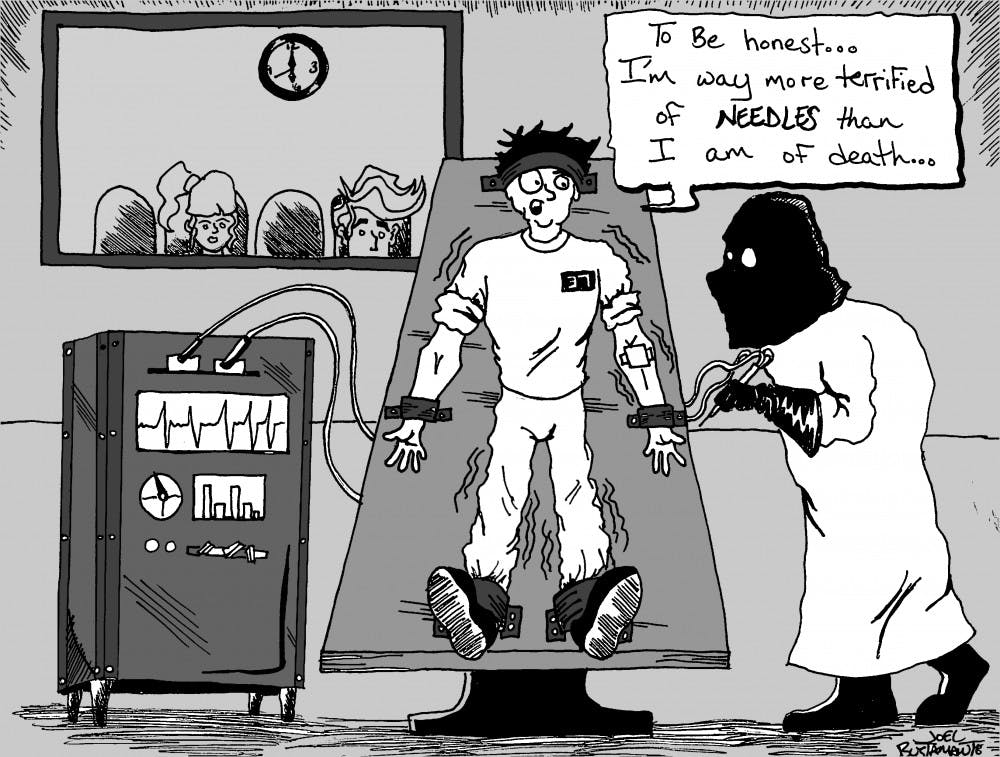Oklahoma ended its prominently publicized delay on capital ?punishment with the execution of Charles Warner on Thursday, Jan. 15.
Surrounded by fear of a botched interaction on behalf of the drug cocktail, Warner dreaded an agonizing end to his life.
Thankfully, his execution was ?uneventful, as his life ended about 20 minutes into the act.
Warner was not alone in his fear of cruel and unusual punishment, as many were outraged this past April by the slow death of Oklahoma inmate Clayton Lockett.
In one of the longest executions in national history, Lockett displayed visible and audible signs of excruciating pain until he experienced a heart attack 43 minutes after the ?injection had been administered.
The drugs used in these executions have become a source of major ?controversy for not only the state of Oklahoma, but the world.
Greatly displeased by the faulty methods used to end Lockett’s life, Oklahoma was under intense pressure to not flop another execution.
A repeat of Lockett’s situation could jeopardize the state’s legal standing concerning capital punishment and the Constitution’s ban on cruel and unusual punishment.
Even though this pressure was upon them, state officials chose to continue to use a similar three-drug cocktail to the one that ravaged ?Lockett.
Out of sheer convenience and ?risking a blatant disregard for the ?Constitutional rights of its inmates, Oklahoma is continuing this formula due to a lack of alternatives.
The state has constructed an ?elaborate, state-of-the art execution chamber in an effort to cleanse the public’s palette of the bitter taste left by Lockett’s gruesome execution.
The notion of buying the security of this procedure seems outrageous, especially if one assesses what is really happening in these chambers.
Officials watch as a drug ?cocktail forces an inmate’s life to run out, counting the minutes with ?anxious anticipation.
The thoughts that must pass through these individuals’ heads are difficult to imagine, as hoping for the ability to administer a smooth and quick death to an otherwise healthy person seems nothing short of ?insanity.
The Editorial Board believes capital punishment is a grotesque waste of funds and is incredibly dehumanizing to all involved — especially the inmate.
Dying with hopeful eyes upon you as you lie strapped to a gurney is ?absolute humiliation. Oklahoma’s next inmate set to be executed, Richard Glossip, is ?scheduled to be injected with the ?tri-drug concoction Jan. 29.
It is certain that the ?executioners involved will not be the only ones holding their breath, as Oklahoma’s legacy of capital ?punishment could be at stake.
In hotly contested ?decisions, the human beings that are now reduced to the subhuman status of death-row inmate are the only ones who stand to lose, no matter what the outcome.




